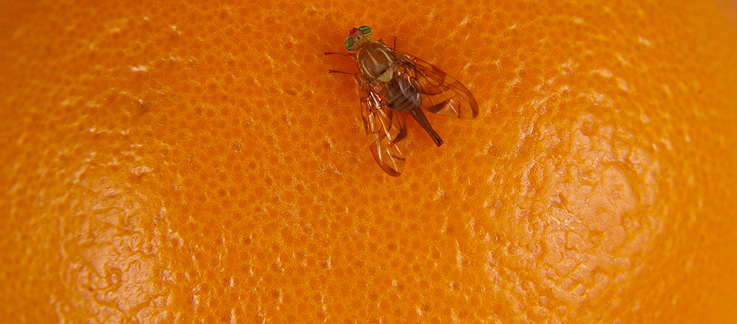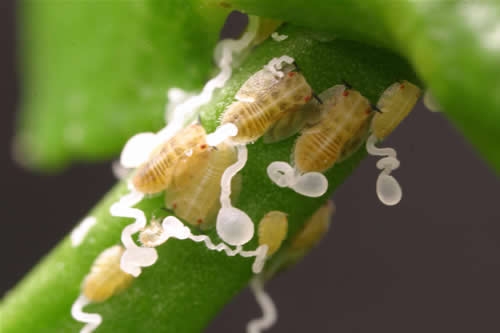Mexican Fruit Fly Quarantine in Portion of Los Angeles County
Three Flies Detected in Long Beach
CDFA News Release
A portion of Los Angeles County, including the Los Angeles and Long Beach ports, has been placed under quarantine for the Mexican fruit fly following the detection of three flies, including two mated females, within the City of Long Beach. Mated females are significant because they indicate a breeding population that increases the risk of spread of this pest. CDFA is working collaboratively on this project with the United States Department of Agriculture (USDA) and the Los Angeles County Agricultural Commissioner’s Office.
The quarantine area measures 79 square miles, bordered on the north by CA-91; on the south by the Pacific Ocean; on the west by I-110; and on the east by Palo Verde Avenue. A link to the quarantine map may be found here: www.cdfa.ca.gov/plant/
Sterile male Mexican fruit flies will be released in the area as part of the eradication effort. The release rate will be approximately 325,000 sterile males per square mile per week in an area up to 50 square miles around the infestation. Sterile male flies mate with fertile female flies in the natural environment but produce no offspring. The Mexican fruit fly population decreases as the wild flies reach the end of their natural life span with no offspring to replace them, ultimately resulting in the eradication of the pest. In addition, properties within 200 meters of detection sites are being treated with an organic formulation of Spinosad, which originates from naturally-occurring bacteria, in order to remove any mated female fruit flies and reduce the density of the population. Finally, fruit removal will occur within 100 meters of properties with larval detections and/or mated female detections.
The quarantine affects any growers, wholesalers, and retailers of susceptible fruit in the area as well as nurseries that grow and sell Mexican fruit fly host plants. Those businesses are all required to take steps to protect against the spread of the pest. At the Long Beach/Los Angeles ports, exports as well as imports may be impacted depending on specific circumstances. The quarantine will also affect local residents growing host commodities on their property. Movement of those commodities is not permitted. Residents are urged to consume homegrown produce on site. These actions protect against the spread of the infestation to nearby regions, where it could affect California’s food supply as well as backyard gardens and landscapes.
The Mexican fruit fly can infest more than 50 types of fruits and vegetables. For more information on this pest, please see a pest profile at: www.cdfa.ca.gov/plant/go/
While fruit flies and other invasive species that threaten California’s crops and natural environment are sometimes detected in agricultural areas, the vast majority are found in urban and suburban communities. The most common pathway for these invasive species to enter our state is by “hitchhiking” in fruits and vegetables brought back illegally by travelers as they return from infested regions of the world. To help protect California’s agriculture and natural resources, CDFA urges travelers to follow the Don’t Pack a Pest program guidelines (www.dontpackapest.com).










